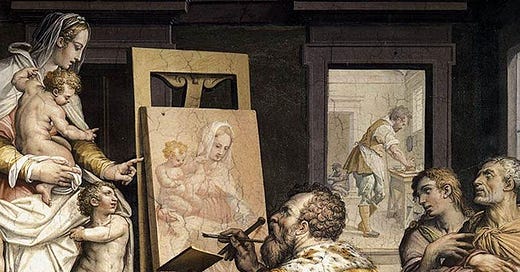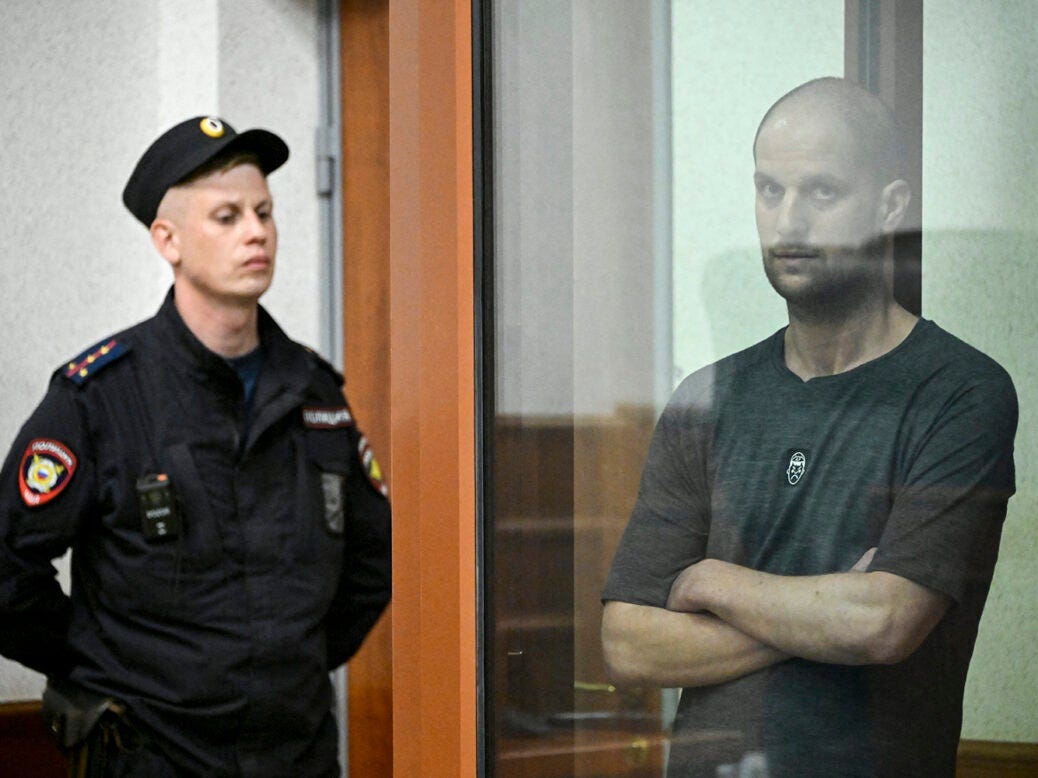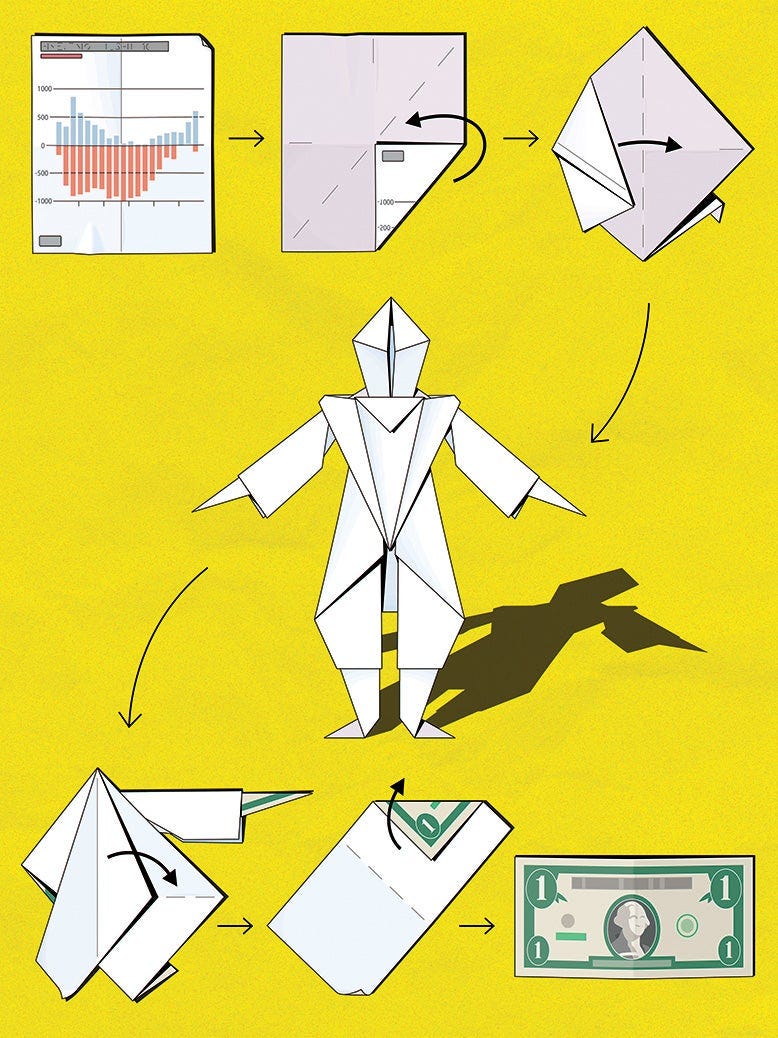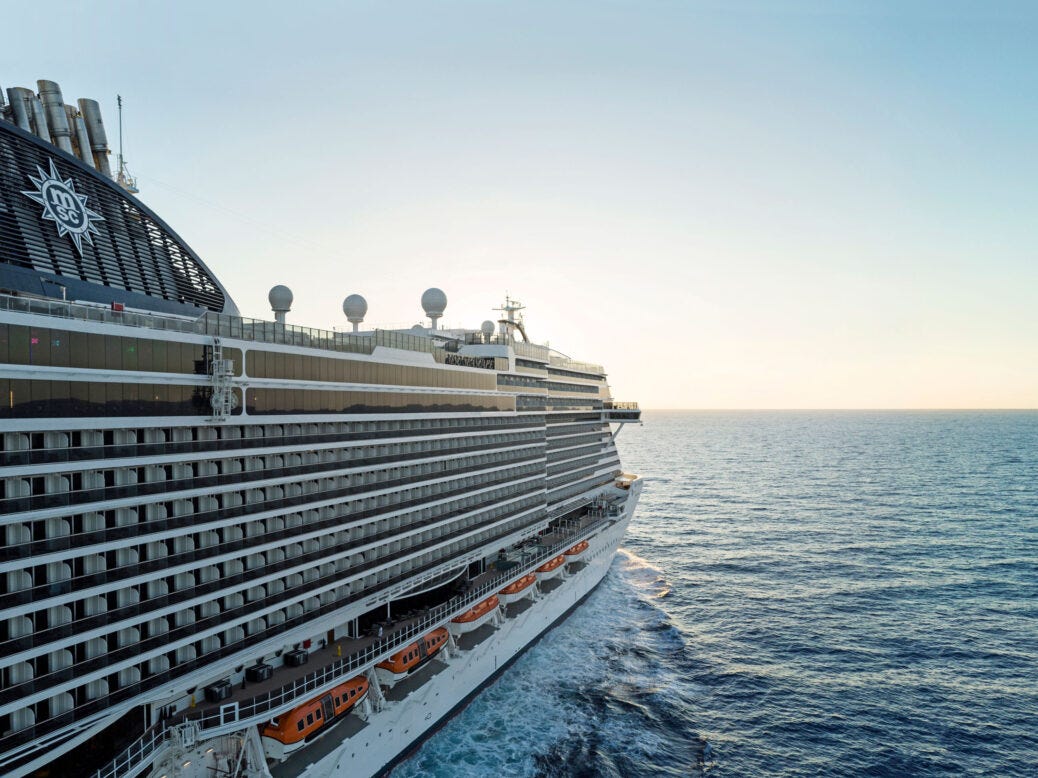The Saturday Read: The gathering forces
Inside: Hamas and Iran, Evan Gershkovich, Andy Murray, Charli XCX, and the Renaissance.
Good morning. Welcome to the Saturday Read, the New Statesman’s guide to politics, culture, books, and ideas. This is Jason, together with Finn, Nicholas, Pippa and George.
It’s been a dark week in Britain, which means these introductory notes are not as jaunty as one would have wished in this first week of August, as the long school holidays stretch before us (though I have been enjoying the Olympics, notably the final, poignant farewell of Andy Murray on the red clay at Roland-Garros – I wrote this appreciation of the great Scottish tennis champion in January last year).
In a speech at the New Statesman summer party on 22 July, Keir Starmer expressed concern about the threat posed by the gathering forces of nationalist populism. “You only have to look across the Channel at Europe and you see nationalism and populism in all its forms and all its strengths. And do not think for a minute that that could never happen here. It could – and it might – if we fail in our project of delivering change.”
He returned to the theme this week as the new Labour government responded to the outbreak of public disorder in several English towns that followed the horrifying knife attack on children at a dance class in Southport, in which three young girls were murdered and others seriously wounded. Following a meeting with senior police leaders at 10 Downing Street, Starmer blamed far-right agitators for the unrest that broke out in the days after the attack. He also served warning on social media companies and “those who run them”. Violent disorder, he said, “clearly whipped up online, that is also a crime”.
“Something is going on,” Nigel Farage, the leader of Reform UK, said to me repeatedly when I interviewed him during the general election campaign. He blamed ”societal decline” for what he considered to be the bleak mood in the country while claiming also to have done more “than anyone else to defeat the far right” in Britain.
But the far right is not defeated. It is active, here and now, as we saw in Southport, Hartlepool, Manchester and London. Inflamed by misinformation and threats of violence online – and what they believe to be the failure of governing elites to address entrenched issues such as mass migration and lax border controls – agitators are determined, their networks are resilient, and they are mobilising.
Can anything be done about the tech platforms? Free-speech absolutists think not. I disagree. For too long, powered by algorithms, the tech giants have profited hugely from expressions of outrage, hatred and misinformation circulating freely on their platforms. These spaces are simultaneous and global, and they are not regulated or moderated. Yet rather than being treated as “platforms”, they should be regulated as publishers (as traditional media is) and held legally responsible for what is posted, or “published”, on those platforms. Our public discourse is degraded enough. Without government intervention, our descent into the moronic inferno will accelerate and Musk, Zuckerberg and co will become even richer and more powerful.
What defines a resilient community? And how does it thrive in the face of challenges? The research and partnerships undertaken by the University of Plymouth is shaping policy to benefit the city. Learn more here.
The picks…
Good morning, Finn here. Here’s a selection of our favourite pieces from across the New Statesman this week. Lawrence Freedman considers the strategic logic of political assassinations in the Middle East. Meanwhile, Sohrab is not bullish about the US presidential election campaign. In this dark week, we are buoyed by the release of the Wall Street Journal’s Evan Gershkovich from prison in Russia. As ever, have a good weekend and thanks for reading.
1—“A measure of Hamas’s weakness.”
In the space of 12 hours, a leading figure in Hezbollah’s military was killed by an Israeli airstrike in Beirut and Hamas’s political leader was assassinated in Tehran, using a hidden explosive device. Lawrence Freedman describes the dangerous state of the Middle East after a week that felt like a major escalation. “The problem,” he writes, “is that all actors in this tragedy are locked in a struggle without an obvious end”. GM
Iran, Hezbollah and Hamas dearly wish that Israel did not exist and Israel feels the same about them. But they will all continue to survive in one form or another. They dare not show weakness, yet they are unable to secure decisive victories. When Netanyahu promised a response to the strike that killed 12 Druze children in the Golan Heights border area on 27 July, he said it would be “harsh”. Khamenei said the response to Haniyya’s death would also be “harsh”. On all sides there may be talk of eventual victory, but much of the language is about punishment and vengeance, and then resilience and resistance. Assassinations and rocket attacks are now part of the routine cycles of violence, and make less difference to the underlying strategic logic than the headlines may suggest.
2—“Putin appears to have raised his middle finger.”
The release of Evan Gershkovich, Paul Whelan and Alsu Kurmasheva is cause for great cheer. However, Katie Stallard makes a grimmer point: in effect, the Russian leader has secured the release of spies and criminals in exchange for a group of people who should never have been imprisoned in the first place. GM
He takes hostages because he understands their value. He has learned through years of experience that these thuggish tactics work. It is not a coincidence that Gershkovich was arrested in Russia in March 2023, less than four months after the US basketball star Brittney Griner was released. In that exchange, Putin got back the notorious Russian arms dealer Viktor Bout. He already had Whelan, who had been detained since 2018, but he needed more Americans – Kurmasheva was also detained in October 2023 – to trade for his wish list of assassins and saboteurs when the time was right.
3—“The last Irish iconoclast.”
When Edna O’Brien – who died on Saturday – published her first novel, The Country Girls, in 1960, she was at once proclaimed a hero and a national pariah. The book was banned by Irish censors and burned by priests (“all the usual calamities” Edna joked at dinner in London in 2019) for breaking rank and criticising the ultra-conservative establishment of 1950s Ireland. But all great Irish literature is defined by dissent, I argue. So why do contemporary Irish writers feed the status quo? FMcR
There is a looming anxiety that Irish iconoclasm is dying with O’Brien. O’Casey challenged the republican idealism of the early 1900s, and O’Brien the Catholic mores of the middle of the century. Now Ireland has adopted a liberal patina it tells a new story about itself, of a weary and Catholic place transformed by Europe and modernity into a tolerant utopia. Recent riots, violent clashes with police, anti-immigrant agitation and suspected arson attacks on asylum centres suggest that this narrative does not exactly cohere with reality. With the exception of the Booker-winning Prophet Song by Paul Lynch, challenges to the national story are scant in the contemporary Irish canon. The fiction scene is obsessed with sexual politics, tawdry class commentary, and the comedown of the Celtic tiger – all imbued with leftist pieties. These books can be hard to distinguish from one another.
4—“Elon Musk’s garbled apocalypticism”
What’s the richest person in the world up to now? Elon Musk wants humanity to live. If that sounds a refreshingly uncontroversial project to you, Quinn Slobodian has some bad news… GM
If the demographic catastrophists acknowledge that even the most targeted interventions, such as in Hungary, have only a small impact, then they are ironically sanctioning a future for countries, including Italy, to look like the most pronounced version of their worst-case scenarios: walled states with populations ageing towards disappearance.
To enjoy our latest analysis of politics, news and events, in addition to world-class literary and cultural reviews, click here to subscribe to the New Statesman. You’ll enjoy all of the New Statesman’s online content, ad-free podcasts and invitations to NS events.
Whether your cruise takes in the vibrant countries of the Mediterranean, dynamic East Asia or majestic Southern Africa, how you see these countries, places and cultures can transform it. The MSC Yacht Club provides for an even more refined and indulgent experience. Members of the Club enjoy excellent personalised service that is unmatched in cruise travel. Discover more about an MSC luxury cruise here.
5—“Vasari’s Whig theory of art history.”
Happily, we live and babble in the wake of the Renaissance. We really ought to thank Giorgio Vasari more often. As Michael Prodger explains, without that chronicler of art’s greatest moment we wouldn’t know half so much about it. GM
It is Vasari, for example, who claimed that Piero di Cosimo lived entirely on eggs, cooked in batches of 50 in the water he used to prepare glue. He was the first to relate that Giotto sent a drawing of a perfect circle made without moving his arm to Pope Benedict IX to demonstrate his skill. He recounted how the commission to design the dome of Florence’s cathedral was decided when Filippo Brunelleschi suggested “that whosoever could make an egg stand upright on a flat piece of marble should build the cupola, since thus each man’s intellect would be discerned”. His rivals all failed but he succeeded by “giving one end of it a blow on the flat piece of marble”, allowing it to stand. And it was Vasari who claimed that Leonardo’s teacher Andrea del Verrocchio gave up painting after seeing his pupil, “although he was but a lad”, paint an angel so perfect he knew he could not compete.
6—“There aren’t enough edgelords to propel Trump-Vance to victory.”
Kamala Harris’s presidential campaign is an overly memey, too-online affair. Donald Trump’s campaign is an overly memey, too-online affair. Meanwhile, Americans die of fentanyl addiction and China rises. Sohrab laments the state of US politics. GM
Those who dominate the online right, of course, prefer to use actual problems to dunk on their perceived social enemies: childless women working in offices and the like. But even in 2024, online isn’t real life. There aren’t enough edgelords to propel Trump-Vance to victory where it matters, just as armies of “White Dudes for Kamala” professing allyship don’t suffice to win her Northampton County, Penn. One of the two camps will win come November, but only just – it will be a win without the strong mandate needed to pull the nation from a generational rut.
7—“He loved newsrooms and newspapers, and was invariably thinking about his next trip.”
This week the veteran war reporter Kim Sengupta died suddenly at the age of 68. Jason, who spent several days in his company on a reporting trip to Israel and the West Bank earlier this year, remembers his great courage and resilience. PB
He spent nearly 30 years at the Independent as defence and diplomatic correspondent and editor. He was revered in our trade for his curiosity, bravery and determination to report from the world’s war zones. The last time I saw him he was preparing to head to the far north of Israel, to the Lebanon border – towards conflict and danger.
George’s Best of the Rest
Sky: Southport suspect named; Keir Starmer warns “marauding mobs”.
BBC: Iran vows revenge on Israel for the killing of Hamas’s political leader.
Independent: Rachel Reeves commences efforts to fill £22bn “black hole” with spending cuts and tax rises.
Guardian: Russia to release Evan Gershkovich in a prisoner swap.
Forbes: Kamala Harris leads Donald Trump in three polls this week.
Ryan Coogan: Trump is weird.
Janan Ganesh: Why Vance-ism won’t be the future.
Isabel Cristo: On getting dressed.
Rebecca Mead: Gillian Anderson’s sex education.
Ted Gioia: Love songs – you know you like them.
Profilic Portsmouth Creme Egg thief jailed after 798th hit. Just couldn’t take 797 and stop, could you?
AI tries to protect swimmers from congregating sharks. I think I might just stay on the beach, to be honest.
Two fall ill in Bath after being approached by elderly woman holding suspicious bag.
And with that…
Following the death of Edna O’Brien – the great Irish novelist – I have been thinking about what it means to be an iconoclast. O’Brien challenged the Catholic mores of 1950s Ireland (a brave thing to do in a country that under the cosh of Rome) and refused to bow to the status quo. In doing that, as I write above, she earned her place in the Irish literary canon.
This brings me to Charli XCX (stay with me). Her album Brat, released at the beginning of the summer – coded by its lo-fi lime green cover and boorish lyrics about cocaine and felonry – is zeitgeist-defining. As a moment, it is an obvious antidote to all the data suggesting the youth have been consumed by puritanical boredom. Brat came along and said, “Enough! Let’s take drugs again!” Brat Girl Summer – as it was christened – has taken over. I wrote about Brat and Donald Trump here.
I wonder if the secret to artistic greatness – whether literary or musical – has to be a willingness to break the status quo, rather than ride its wave. In 2017, Eimear McBride wrote in the New Statesman that Edna O’Brien forged a new mould for Irish girlhood. I contend that Charli XCX has not just shifted the zeitgeist but built her own. It is strange to think that the chronicler of mid-century rural Ireland and the bard of messy, loud, electronic pop share much in common. But then again, greatness comes in many guises.
— Finn
The New Statesman is home to the finest writing on politics, culture and ideas. To stay up to date, subscribe using the link above.





















I appreciate that seriously politically correct writers will classify the thugs who are rioting in towns in the North of England as right wing when most are just thugs who hate the normality of life and want the excitement that was characteristic of the Vikings hoards who erupted out of Scandinavia in the 8th century. Then there was booty to rob, unarmed monks to slaughter, reputations to be made. Now is such a disappointment for them. The prisons are full so where can we put them. Well, a suggestion, let us create a special force of berserks, similar to the front line axemen used by the Vikings, and later copied by the Ottoman Turks in the siege of Constantinople in 1453. They would be imprisoned and during that imprisonment, trained in specialist weapons and held in reserve for occasional use by the British Army. No, it would not be necessary to castrate them but, if no use is found for them they must be bound over to keep the peace.